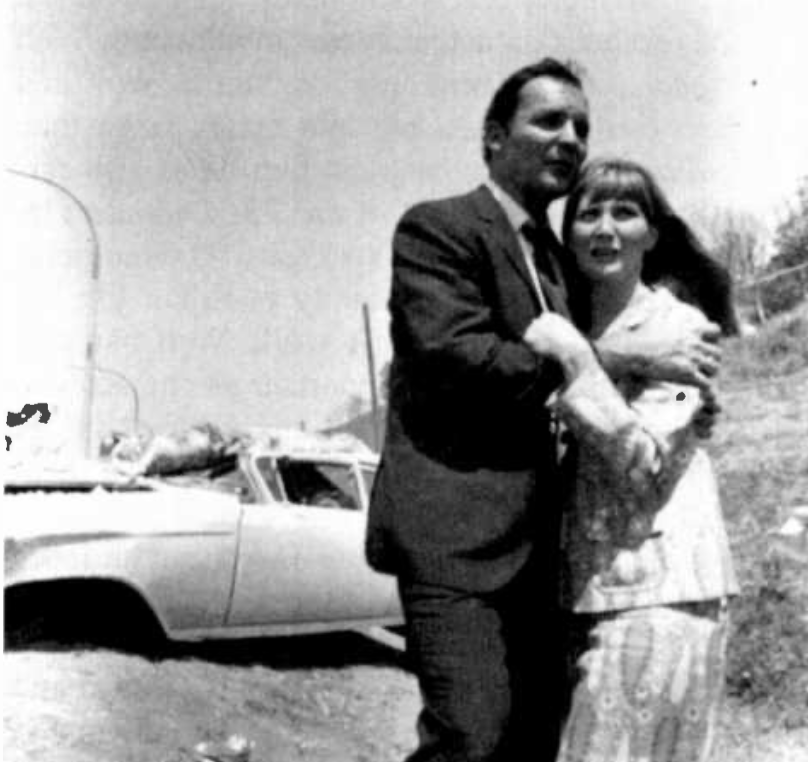Wojeck
Wojeck
Canadian Drama Series
First aired on the anglophone network of the Canadian Broadcasting Corporation (CBC) for two seasons ( 1966 and 1968), Wokeck was a magnificent aberration: a popular, homegrown dramatic series made for the pleasure of English-Canadian viewers. Early on, francophone producers in Montreal had developed a particular genre of social melodrama. known as the teleroman, that captivated the imagination of French Canadian viewers. Their anglophone counterparts had no such history of success. The record of domestic dramatic series in English Canada had been short and dis mal. a collection of failures. or at best partial successes, usually modeled on U.S . hits but lacking either the inspiration or the funding necessary to succeed. Audiences much preferred watching the originals, the stories Hollywood had made, until Wojeck arrived. Early in its first season, Wojeck was purportedly attracting more viewers than many U.S. imports. and it received even higher ratings when re broadcast in the summer of 1967.
Wojeck.
Photo courtesy of National Archives of Canada/CBC Collection
Bio
Part of the success of Wojeck rested on its visual style. It was the first time the CBC had produced a filmed dramatic series for its national audience. Executive producer Ronald Weyman drew on his experience at the National Film Board to deliver stories that had the look of authenticity. This was especially true in the first season. when each episode was in black and white and scenes were sometimes shot with a handheld camera, giving the productions a gritty, realistic quality that at times suggested the news documentary. The look of authenticity was less apparent in the second season, when the series was shot in color.
Success, however, had as much to do with the subject, the script, and above all the acting. Wojeck told stories about a big city coroner and his quest for justice. The character and setting were novel twists on the very popular 1960s U.S. genre of workplace dramas that focused on the exploits of such professionals as lawyers. doctors. and even teachers and social workers. A decade later, the hit U.S. series Quincy, which began its long run on NBC in 1976, made the notion of a crusading coroner much more familiar to North American audiences. But at the time that it aired, Wojeck was an original. possibly inspired by the much publicized exploits of an actual coroner of the city of Toronto.
The show did conform nonetheless to the formula of such U.S. hits as Ben Casey (1961-66) and Mr. Novak ( 1963-65). All of the episodes of Wojeck (written in the first season by Philip Hersch) center on the seamy side of life: racism, ageism, discrimination (one program deals with male prostitution and homosexuality), and other species of injustice. Often the "heavy" is society itself, whose indifference or intolerance has bred evil. Wojeck was a kind of "edutainment," since viewers were supposed to absorb some sort of moral lesson about the country's social ills while enjoying their hour of diversion. The first show, an outstanding episode titled "The Last Man in the World,'' looks at why an Indian committed suicide in the big city, exposing "Canada's shame": its mistreatment of its native peoples.
Wojeck features a strong male lead, Dr. Steve Wojack, superbly played by John Vernon, who is backed up by a "team" that includes his wife (the understanding helpmate), an assistant (efficient but unobtrusive), and a sometimes reluctant crown attorney (the well meaning bureaucrat). Wojeck is emphatically masculine: big and rough, aggressive, short-tempered, and domineering. These qualities are most apparent when he deals with the police and other authorities. He is easily moved to anger and moral outbursts but is much more understanding when he deals with society's outcasts. Wojeck is the engaged liberal: an advocate for the powerless committed to reforming the practices of the system so that it ensures justice for all. Like his Hollywood counterparts. Wojeck embodied the 1960s myth of the professional as hero who will turn his talents and skills to making our sadly flawed world a better place.
Wojeck had no real successors. Weyman and others did produce a number of forgettable dramas in the next few years, but none could match the appeal of the imports. Ironically, the very success of Wojeck had spelled trouble for CBC's drama department. John Vernon was lured away to Hollywood. where he came to specialize in playing villains. Indeed, Weyman later claimed that much of the talent that had contributed to the appeal of Wojeck was drawn away to the greener pastures down south. The memory of that brief, glorious moment was sufficient to justify replaying some of the episodes of Wojeck on the CBC network more than 20 years later.
See Also
Series Info
-
Dr. Steve Wojeck
John Vernon
Marty Wojeck
Patricia Collins
Crown Attorney Bateman
Ted Follows
Byron James
Carl Banas
-
Ronald Weyman
-
20 episodes CBC
September 1966-November 1966
Tuesday 9:00-10:00
January 1968-March 1968
Tuesday 9:00-10:00

